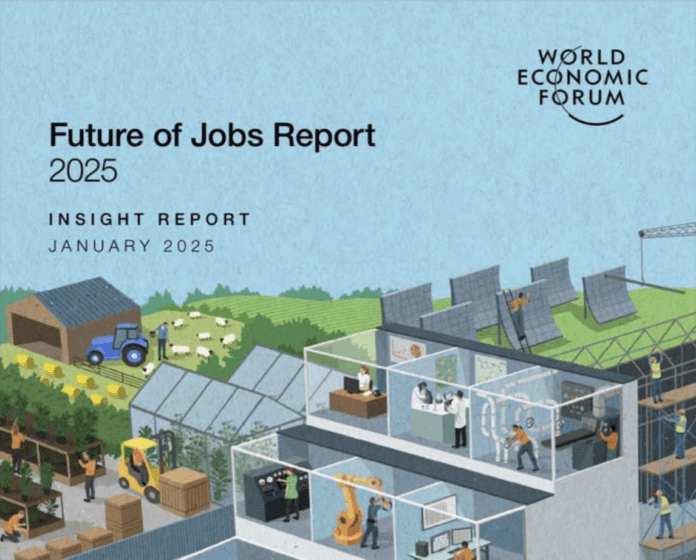The Future of Jobs Report 2025 by the World Economic Forum (WEF) provides a detailed analysis of the evolving global employment landscape, focusing on how technology, economic shifts, and societal changes are shaping the job market. It offers critical insights into job growth, declining roles, and the skills required to thrive in the future economy. Here’s a 500-word summary:
Emerging Job Market Trends
The global workforce is undergoing significant changes, with certain sectors projected to grow rapidly while others face decline. According to the report, frontline occupations like farmworkers, delivery drivers, and healthcare support roles are expected to lead job creation by 2030. These jobs are driven by increasing demand for essential services and localized production.
Conversely, advancements in artificial intelligence (AI) and automation are expected to reduce the need for roles such as typists, word processors, and traditional administrative positions. Routine-based jobs that rely heavily on manual or repetitive tasks are at higher risk of displacement due to the integration of AI technologies.
The Role of AI and Technology
AI continues to transform industries, acting as a double-edged sword for the workforce. On one hand, it enhances productivity and creates new hybrid roles that require human-AI collaboration. On the other hand, it poses challenges, such as potential job displacement and increased inequality. High-wage, highly skilled roles are expected to benefit more from AI integration, while low-wage workers may experience limited advantages.
Former HR Manager earning Sh500,000 monthly from remote jobs
For instance, while AI accelerates the growth of industries like software development and data analysis, it also raises concerns about unequal economic benefits. Workers without access to advanced education or skills training may find themselves left behind, exacerbating socio-economic disparities.
Upskilling and Workforce Transformation
The report emphasizes the urgent need for upskilling and reskilling programs. Employers and policymakers are encouraged to invest in targeted training initiatives to equip workers with the necessary skills to thrive in an AI-dominated economy. Key areas of focus include digital literacy, critical thinking, and advanced technical skills related to AI and automation.
To combat labor shortages, organizations are advised to tap into underutilized talent pools, such as veterans, individuals with disabilities, and older workers. By fostering inclusivity, businesses can address workforce gaps while enhancing innovation and productivity.
Economic and Policy Considerations
The report highlights that job creation remains concentrated in non-cyclical sectors, such as healthcare, education, and government. These industries are resilient to economic fluctuations and are expected to provide stable employment opportunities in the coming years. However, this stability hinges on governments implementing proactive policies to mitigate the disruptions caused by technological advancements.
Policies aimed at supporting displaced workers, reducing inequality, and fostering mental well-being are critical to ensuring a smooth transition. The concept of “mental wealth” is introduced, advocating for strategies that prioritize workers’ mental health and adaptability in the face of rapid change.
Conclusion
The Future of Jobs Report underscores the importance of proactive strategies to prepare for a rapidly changing job market. By focusing on upskilling, inclusivity, and policy reforms, stakeholders can navigate the challenges posed by AI and automation while unlocking opportunities for sustainable growth. As technology continues to reshape the employment landscape, collaboration between governments, businesses, and workers will be crucial in creating a resilient and equitable future workforce.









